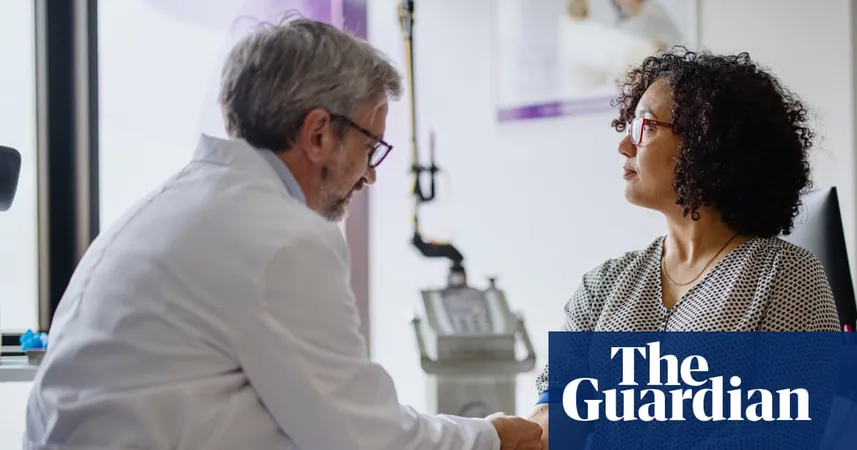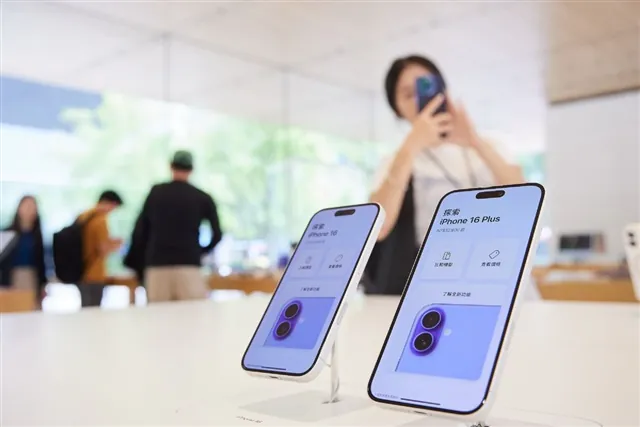
Beware of DIY Menopause Tests: Experts Warn They're Harmful!
2025-09-07
Author: John Tan
The Hidden Dangers of Over-the-Counter Menopause Kits
In a shocking revelation, leading doctors are cautioning against costly, over-the-counter hormone tests for menopause, labeling them clinically useless and a potential threat to women's health care.
Sold by private clinics and easily accessible for self-testing, these kits promise personalized insights by measuring hormone levels. However, experts are passing them off as misleading and unnecessary.
Experts Speak Out Against Harmful Misinformation
Dr. Stephanie Sterry, who penned an alarming editorial titled 'Menopause Misinformation is Harming Care,' asserts that the surge of private healthcare options and unqualified 'experts' peddling advice via social media is disastrous for women's well-being. "These tests lack any solid evidence and provide no added benefit when it comes to treatment," she states. "Women end up spending hundreds of pounds on ineffective tests. It's a waste of time and money!"
The Types of Tests: Do They Really Help?
Two main types of menopause hormone kits exist in the UK: rapid urine tests that promise results in just two minutes, and finger-prick blood tests analyzed in labs with results in one to two days. Prices range from just £8 for urine tests at high street retailers, to a whopping £189 for blood tests at clinics like Bluecrest Wellness.
Expert Consensus: Symptoms Should Define Diagnosis, Not Hormones
Guidelines from respected organizations such as NICE and the British Menopause Society state that for women over 45, menopause should purely be diagnosed based on symptoms, not fluctuating hormone levels that can vary daily.
Dr. Sterry notes that these at-home tests are marketed wrongly as essential for tailoring hormone therapy. In truth, they provide limited clinical value—there's no precise therapeutic window for menopausal hormone therapy, and many testing methods lack accuracy.
Unrealistic Expectations Can Lead to Misguided Treatments
Dr. Paula Briggs, Chair of the British Menopause Society, adds her voice to the caution, indicating that the rise of these tests has given women unrealistic expectations about Hormone Replacement Therapy (HRT). Her concerns extend to the commercialization of women's health, so much so that she has opted out of private practice.
Navigating Trust Between Patients and Doctors
Dr. Susanna Unsworth, a menopause specialist, echoes these sentiments, stating that the presence of independently acquired test results complicates doctor-patient relationships. "Most of these results are not meaningful, and it can dent trust when I inform patients their tests are of little value," she cautions.
Supporters Defend Testing: Empowerment or Misinformation?
Defending the testing kits, Dr. Martin Thornton from Bluecrest argues that the tests empower women by giving them data that can help contextualize their symptoms. He believes this opens a vital dialogue between patients and their doctors.
The Bottom Line: Evidence is Key
Yet Dr. Sterry firmly counters this, highlighting that hormone tests don’t correlate with symptom severity, leading to possible misdiagnoses and insufficient treatment. "A test should only guide care if its results directly impact treatment decisions. Unfortunately, hormone testing in menopause is not evidence-based and complicates care rather than improving it," she concludes.
The conversation surrounding menopause care is evolving, and consumers are urged to remain vigilant against misleading products that may detract from essential, evidence-based medical care.




 Brasil (PT)
Brasil (PT)
 Canada (EN)
Canada (EN)
 Chile (ES)
Chile (ES)
 Česko (CS)
Česko (CS)
 대한민국 (KO)
대한민국 (KO)
 España (ES)
España (ES)
 France (FR)
France (FR)
 Hong Kong (EN)
Hong Kong (EN)
 Italia (IT)
Italia (IT)
 日本 (JA)
日本 (JA)
 Magyarország (HU)
Magyarország (HU)
 Norge (NO)
Norge (NO)
 Polska (PL)
Polska (PL)
 Schweiz (DE)
Schweiz (DE)
 Singapore (EN)
Singapore (EN)
 Sverige (SV)
Sverige (SV)
 Suomi (FI)
Suomi (FI)
 Türkiye (TR)
Türkiye (TR)
 الإمارات العربية المتحدة (AR)
الإمارات العربية المتحدة (AR)